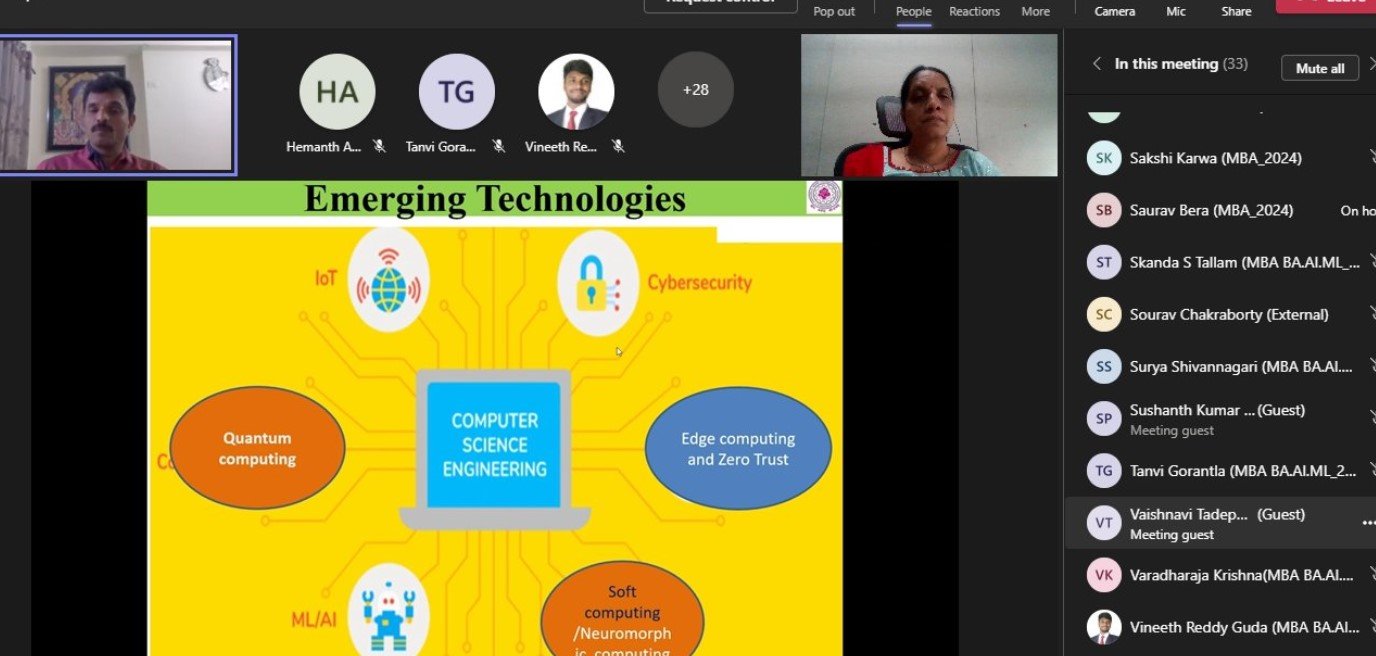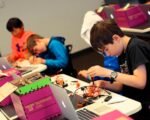Tech-Enabled Learning Systems
Revolutionizing education with technology has significantly impacted educational systems, scaling up access and reducing inequity. Tech-enabled learning has become the backbone of modern education, making it more enjoyable and seamless for students like you. With innovative technology in classrooms, you are being prepared for a digital world and equipped with future skills. Artificial Intelligence and Virtual Reality are transforming educational landscapes by personalizing learning experiences, enhancing human-led teaching, promoting equity, and preparing you for AI-related work.
Hybrid Learning Models
Technology in the form of hybrid learning models blends traditional and digital methods, making education more dynamic and interactive for you. These models combine the best of both worlds, offering a balance between in-person instruction and online resources. Understanding hybrid learning models is important for your educational journey, as they provide you with a seamless learning experience that prepares you for the digital age.
Key Takeaways:
- Tech-enabled learning: Tech is now a key part of education, making it more accessible and reducing inequality.
- Hybrid learning: A mix of traditional and digital methods is making education more enjoyable and seamless.
- AI and VR: These technologies are personalizing learning experiences and preparing students for the future.
- Challenges in teacher education: Issues like digital skills gaps and integrating technology into curriculum are still hurdles.
- Cheating concerns: There is a worry that students could misuse AI tools like chatbots to cheat in their assignments.
Transformative Impact of AI and VR in Education
It is incredible to see how Artificial Intelligence (AI) and Virtual Reality (VR) are revolutionizing the education sector. With AI, learning experiences can be tailored to your individual needs and preferences, making education more engaging and effective. Through AI-powered tools like chatbots, you can receive instant feedback on your assignments and quizzes, enabling you to learn at your own pace and in a way that suits you best.
Personalized Learning with AI
To enhance your learning journey, AI analyzes your progress and areas for improvement, providing personalized recommendations and resources. This personalized approach not only helps you grasp concepts better but also prepares you for the future workforce, which increasingly relies on AI-related skills. By utilizing AI in education, you can access a wealth of knowledge and guidance that empowers you to reach your full potential.
Virtual Reality in Educational Landscapes
Transformative in nature, Virtual Reality (VR) creates immersive learning environments that transport you to different worlds and scenarios, making education more captivating and memorable. Through VR experiences, you can explore historical events, examine scientific simulations, and even practice real-life skills in a safe and controlled setting. The integration of VR in classrooms not only enhances your understanding but also fosters a sense of curiosity and exploration in your educational journey. Reality truly meets imagination in VR education.
Challenges and Opportunities for Technology Integration in Education
If you are a teacher looking to incorporate technology into your classroom, you may face some digital skills gaps in your own education. With the rapid advancements in AI and VR transforming educational landscapes, it’s crucial for educators to acquire the necessary skills to effectively utilize these tools in teaching. According to recent data, many teachers are struggling to keep up with tech-enabled learning, leading to a gap in digital skills required to fully leverage the benefits of technology in education.
Digital Skills Gaps in Teacher Education
Skills are vital for you as an educator to adapt to the changing educational landscape. It is imperative for teachers to upgrade their digital skills to effectively integrate technology into their teaching practices. Whether it’s understanding how to incorporate AI tools like chatbots into your lessons or utilizing VR for immersive learning experiences, bridging the digital skills gap is key to ensuring that you are prepared to provide your students with a tech-enhanced education.
Implementation Challenges of AI Tools in Schools
Schools are facing challenges when it comes to integrating AI tools into their classrooms, with less than 10% currently utilizing these innovative technologies. Gaps exist in the implementation process, from securing funding for technology investments to providing training for teachers on how to effectively incorporate AI tools into their curriculum.
FAQ
Q: What is tech-enabled learning?
A: Tech-enabled learning refers to the use of technology, such as computers and the internet, to enhance educational experiences.
Q: What are hybrid learning models?
A: Hybrid learning models combine traditional teaching methods with digital tools, creating a more interactive and seamless educational experience.
Q: How are AI and VR transforming education?
A: AI and VR technologies are personalizing learning experiences, making education more engaging, and preparing students for the digital world.
Q: What are some benefits of innovative technology in classrooms?
A: Innovative technology in classrooms helps students develop future skills, adapt to a digital world, and enhances human-led teaching.
Q: What are some challenges in teacher education due to technology?
A: Challenges in teacher education include digital skills gaps, integration of technology into educational content, and limited access to AI and AR tools in schools.















